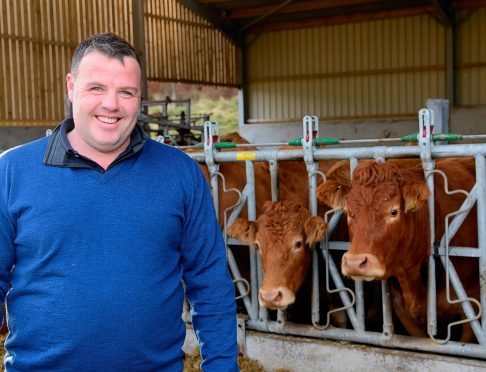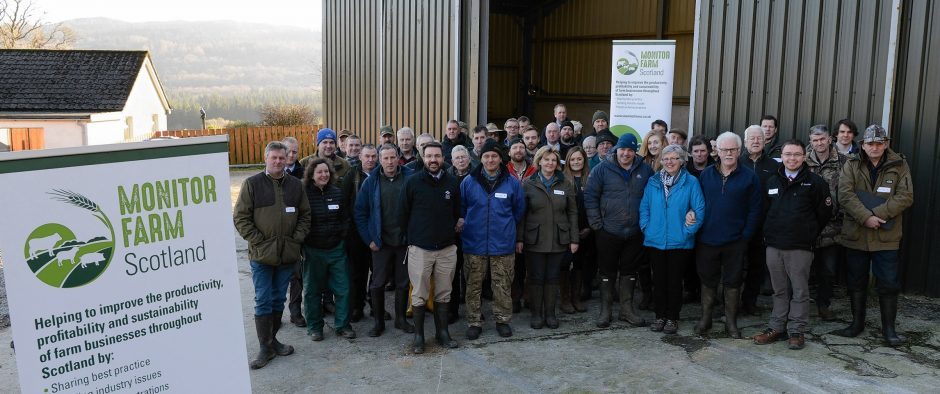The first meeting of the new Lochaber monitor farm was branded a huge success by organisers.
More than 50 members of the farming community attended the meeting at Strone Farm, near Fort William.
The farm, which is run by Chris Cameron in partnership with his parents Malcolm and Eileen, is one of nine farms across Scotland taking part in the new three-year scheme being run by Quality Meat Scotland (QMS) and AHDB Cereals and Oilseeds.
Funded by a £1.25million grant from the Scottish Government, the monitor farms programme sets out to help improve the productivity, profitability and sustainability of Scottish farm businesses.
At the meeting, Malcolm and Chris Cameron outlined how their cattle and sheep enterprises have evolved and highlighted the challenges they faced.
Chris Cameron said: “Dad and I believe that it is important that we should be completely open about both the management and the financial situation of our business from the start.
“We know there is plenty of scope for the farm business to benefit from fresh ideas which could improve our efficiency and that is why we were happy to become monitor farmers.”
“We hope that other farmers will get involved and benefit from following not just what we will be doing over the next three years, but from the wider monitor farm programme too.”
The farm’s 40 strong herd of Limousin cows are currently calved throughout the year and, due to weather and limited grass, are housed from middle of October until the middle of May.
Heifers are generally calved at two-and-a-half years old with calves sold at Dingwall auction mart at around 10 months old, weighing around 375kg. The registered pedigree herd is in the Hi Health scheme and the Camerons have operated a closed herd, with the exception of bulls, for 20 years.
The sheep side of the businesses comprises 500 North Country Cheviots, which are put to either a Lleyn, Cheviot, or Suffolk cross Beltex tup. The Camerons achieve a scanning percentage of 120% and a lambing percentage of 95%.
All ewes are lambed outside in April and due to predation problems, ewes and lambs at foot are then moved to grazing land in Inverness over the summer. Lambs are sold at Dingwall as stores at the end of August or kept for replacements.
All monitor farms taking part in the scheme will undergo an environmental audit.
At the meeting, project facilitator Morven MacArthur from SAC Consulting’s Oban office, shared the results of the Strone Farm environmental audit.
She said: “Some of the land farmed by Strone, which already receives support through agri-environment and woodland schemes, provides a habitat for black grouse and several species of butterflies and plants, as well as some ancient woodland.
“The audit also highlighted areas of environmental concern for the business which included the presence of bracken and rhododendron on some parts of the land, as well as the threat of a growing population of feral pigs.”
As well as being open about the results of their environmental audit, the Camerons opened up their farm accounts for everyone at the meeting to see.
Niall Campbell from SAC Consulting’s Oban office presented a breakdown of the business’ current income and expenditure.
He said although the farm was profitable, its high fixed costs were something the family was keen to address.
“There is no doubt that things will change with regard to farm support payments and that there is a degree of uncertainty ahead for the industry. Farmers should, like the Camerons, prepare for change to safeguard their businesses for the future,” said Mr Campbell.
The next meeting at Strone takes place on Thursday March 9.
Farmers interested in attending the next meeting or wishing to join either the management group or business group that accompanies the project, should contact Mr Campbell or Ms MacArthur on 01631 563093.

